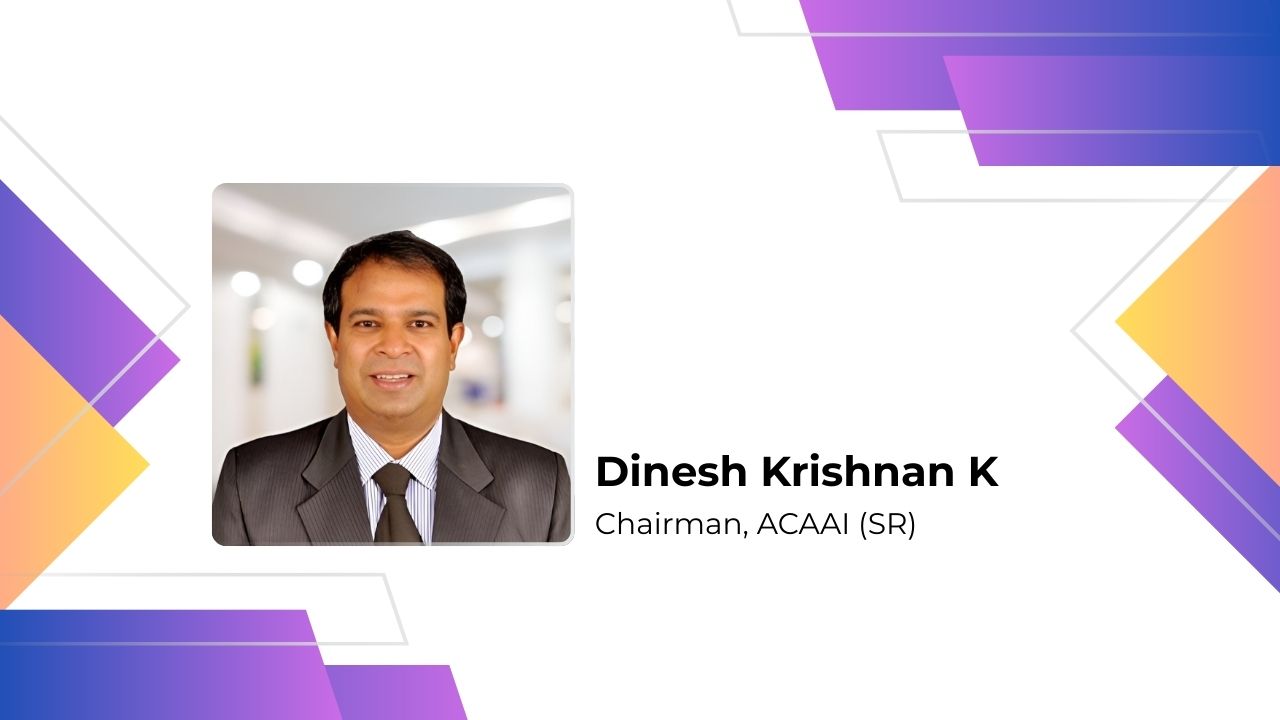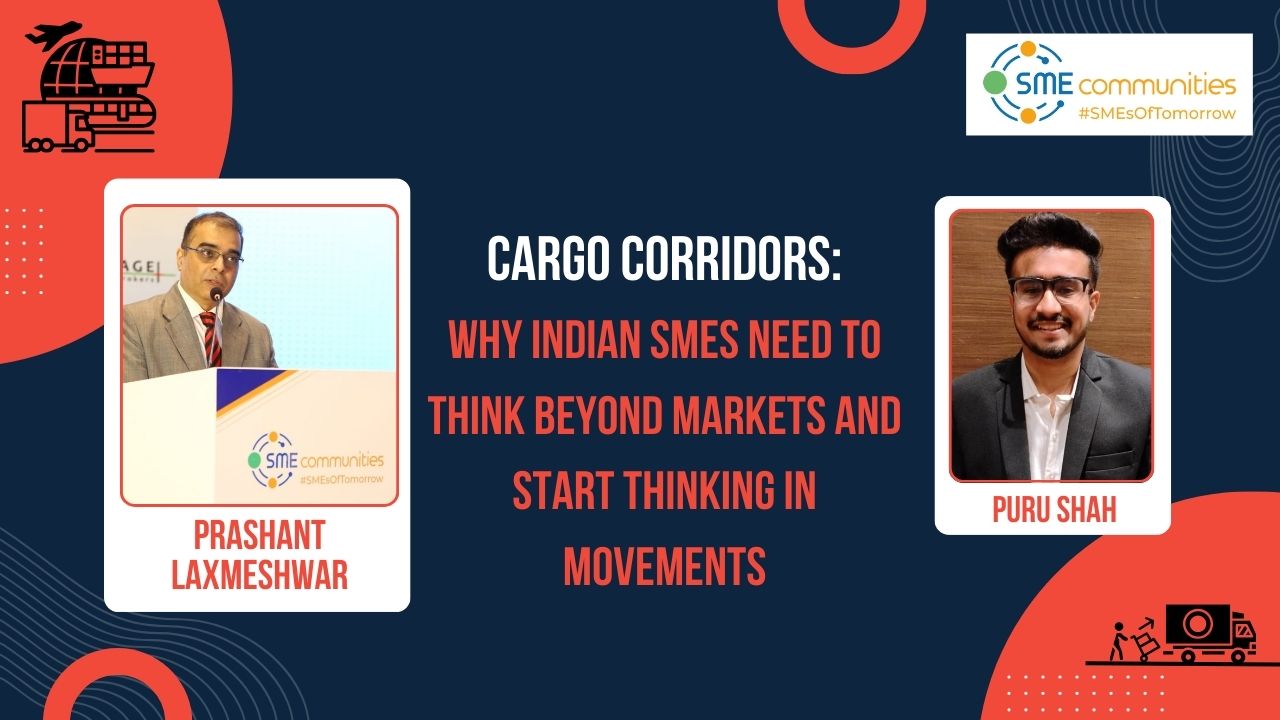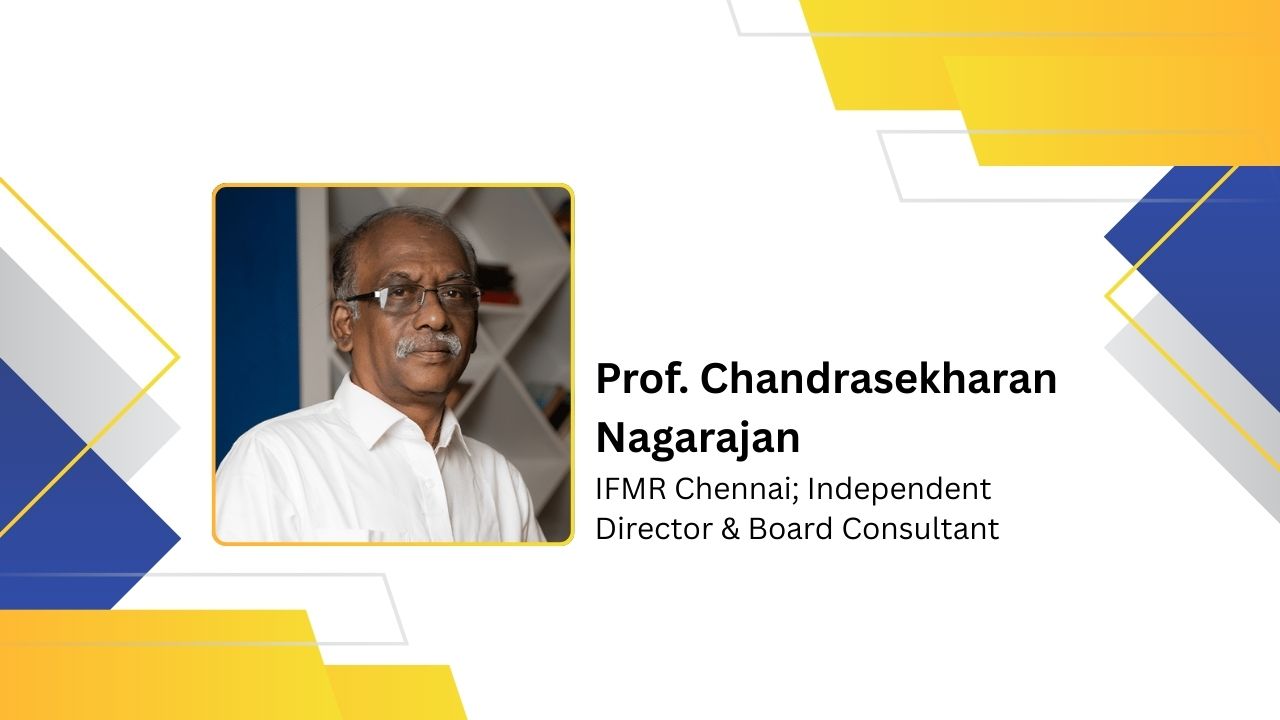From Runways to Revenues: Air Cargo’s Critical Role in SME Competitiveness

At the recent Cargo Corridors conference, Mr. Dinesh Krishnan, Managing Director of United Shipping Services Pvt. Ltd. and a senior leader at the Air Cargo Agents Association of India (ACAAI), spoke with SME Communities about his entrepreneurial journey, the evolving air cargo ecosystem and why logistics must be seen as a competitive advantage for India’s SMEs.
Early Beginnings in Logistics
Q: What first drew you to the world of logistics?
Dinesh Krishnan: My fascination began as a child visiting my father’s office at the Chennai port, where he worked in Indian Oil Corporation’s tanker division. The scale of ships and operations was captivating. At 19, while studying economics at Loyola Evening College, I joined as a contractor clerk at the port’s LCL cargo shed. That hands-on experience taught me humility, resilience and respect for the trade.
Building United Shipping Services
Q: How did your entrepreneurial journey unfold?
Mr. Krishnan: In 1994, I started United Shipping Services from my father’s home in Chennai, with just one room, a car shed for a warehouse and four employees. My earliest clients were SMEs from South India’s hubs – Tirupur, Karur, Ambur. These entrepreneurs, many with limited literacy but immense skill, trusted me to handle export paperwork and ensure timely shipments.
My philosophy was simple: hard work, integrity and customer happiness. That reliability became our reputation and foundation for growth.
Vision for Global Connectivity
Q: What propelled your expansion across India and abroad?
Mr. Krishnan: By 1999, we had offices across South India. Moving to Mumbai in 2000 helped us grow pan-India with branches in Delhi, Pune, Moradabad and Kolkata. Liberalisation brought in global freight forwarders, which meant we had to step up. In 2004, I relocated with my family to Belgium to build direct ties with European buyers. That bold move gave us quality customers willing to pay for reliability.
My vision remains to make Chennai and the southern region a preferred logistics hub by strengthening global connectivity from this part of India.
Challenges for India’s Cargo Agents
Q: What are the pressing challenges for air cargo agents?
Mr. Krishnan: Taxation is a big one. The inverted GST structure on freight often wipes out margins, with refunds delayed by slow manual processes. Airlines also demand hefty bank guarantees from IATA agents, though Indian agents have a spotless payment record—this adds needless financing costs.
Margins are under constant pressure in our low-margin, high-volume business. Global uncertainties, rising costs and intense competition only sharpen the squeeze.
Finally, awareness is limited. Many SMEs don’t realise air cargo can be their quickest route to new markets, whether through low-cost samples, trial orders or faster customer access.
Opportunities Ahead
Q: Despite the challenges, where do you see growth?
Mr. Krishnan: Globally, air cargo demand is rising 4–6% annually, driven by e-commerce and high-value goods. India’s FTAs and export-focused policies are opening new opportunities. Digitalisation through single-window clearances and paperless trade is a huge efficiency booster.
Another big opportunity lies in temperature-controlled cargo- pharma, perishables, electronics where Indian SMEs can carve out a global niche with quality and reliability.
Role of ACAAI
Q: How does ACAAI strengthen the industry?
Mr. Krishnan: The Air Cargo Agents Association of India represents nearly 1,000 IATA agents, most of them SMEs themselves. We are the backbone of air cargo – handling bookings, customs, payments and deliveries.
Our role is to bridge government, airlines and forwarders in shaping policy, while also advocating for skills, technology adoption and professionalisation. Personally, my work with ACAAI is a way of giving back to the industry that made me who I am.
Advice to SME Exporters
Q: What message would you give India’s SME exporters?
Mr. Krishnan: Treat logistics not as a cost but as a competitive advantage. India’s logistics services are globally competitive; SMEs should use this strength to scale their businesses abroad.
Be agile. Use tools like LCL consolidation, multimodal integration and flexible contracts to stay nimble.
Leverage India’s strong connectivity to Asia-Pacific, Europe and the Middle East for faster access to high-value markets.
And above all collaborate. Exporters, freight agents and policymakers must work together with mutual respect. That is how transaction costs fall and competitiveness rises.
Looking Ahead
Q: Where is India’s logistics ecosystem heading?
Mr. Krishnan: I’m optimistic. Policy reforms, infrastructure investments and collaboration are moving in the right direction. SMEs already drive over 80% of India’s EXIM trade, and their success depends on reliable cargo corridors.
For me, the next big focus is mentoring the next generation of air cargo professionals. The future of this industry lies in their hands, and we must prepare them to be confident, tech-savvy and future-ready.
In conversation with SME Communities, Dinesh Krishnan left a clear message: logistics is no longer a background function – it is the very corridor that connects India’s SMEs to the world.
Disclaimer: Views expressed in the article are the personal opinions of the author.











